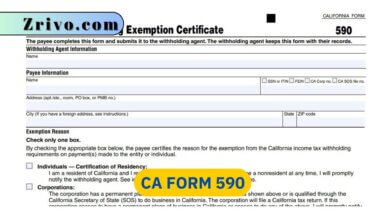Rhode Island State Income Tax 2023 - 2024
Rhode Island has an individual income tax that is progressive.

While the Rhode Island state income tax rate is relatively low, it has other taxes that can significantly impact a person’s finances. These include the sales, property, inheritance, and excise taxes. Understanding these taxes and how they could impact your financial future is important. The state’s income tax is based on your ordinary income, which includes things like paychecks, small business profits and investment earnings. Ordinary income is different from other types of income, such as long-term capital gains and qualified dividends, which can receive special tax treatment.
Rhode Island State Income Tax rate is 5.99%, and the maximum tax bracket starts at $155K. However, it does recognize federal flow-thru entities, such as S-Corporations and LLCs, so you may be able to deduct some of your income. The state also has a 7% sales tax, which does not include local or county taxes. It does, however, exempt groceries and other essential goods. It also has one of the highest property tax rates in the country. Its property taxes are based on the assessed value of your home or rental property, which is determined by a professional appraiser.
As a business owner, you must understand these taxes to ensure your company complies. It is best to consult with a professional or conduct your own legal research to ensure you have the most accurate information. In addition, you should be aware of any industry-specific or local payroll taxes that may apply to your business. Moreover, you should know that filing deadlines vary depending on the type of tax and the amount due.

Who Must Pay Rhode Island State Income Tax?
In Rhode Island, business owners are responsible for state income taxes, sales and use taxes, employer taxes, and any industry-specific or local taxes that apply to their companies. In addition, many municipalities impose their own property and tangible personal property taxes.
Pass-through entities like sole proprietorships, partnerships, and LLCs pay state income tax on their business profits at their personal income tax rates. This is unless they elect to be taxed as corporations, in which case their business income is taxed at corporate tax rates.
C and S corporations must file a corporation tax return (Form RI-1120C or Form RI-1120S) for the current year and two previous years. The minimum tax is $400 for both C and S corporations. Depending on the amount of their taxable income, these entities may also have to pay other state taxes, such as withholding taxes. Businesses must register for these taxes with the DOT by submitting Form TX-17. They must file their withholding reports weekly, monthly, or quarterly and submit their annual reconciliation report, Form RI-1120C, by April 15. They must also pay sales and use tax to the DOT.
Rhode Island State Income Tax Extension
The state’s filing deadline is April 15, and extensions are available. You can apply for a state tax extension if you can’t file by this deadline. In general, Rhode Island offers 6-month extensionsFilers must submit Form RI-4868, Application for Automatic Extension of Time to File an Individual Income Tax Return, to request the extension. Rhode Island also allows taxpayers to donate to a variety of organizations through their tax returns. These donations include a drug program account, the Olympics, the state council on the arts and Nongame Wildlife, childhood disease victims, and military family relief.





